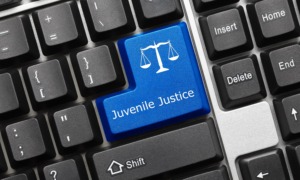Supporters and families of ex-offenders in Minnesota will use an organized advocacy campaign today in part to push for more accuracyin public records of felonies committed by juveniles.
“We get a lot of phone calls from parents where their kid did something when they were like 16, and then they went on to college [and] were great students, but then are rejected for a job at like Target,” said Sarah Walker, COO of nonprofit 180 Degrees and founder of Second Chance Day, the annual advocacy day on reentry issues that is now in its fourth year.
Walker and others intend to use Wednesday to push for legislation that would make only conviction of a felony a matter of public record, as opposed to the current policy of including public records for any felony charge.
Advocates in the state have two main problems with the disclosure of juvenile felonies arrests. First, various justice-related agencies have differing rules about what can be disclosed. Lindsay Davis, staff attorney at Southern Minnesota Regional Legal Services, said Minnesota does not have a centralized public or permanent record.
Government agencies including police departments, prosecuting attorneys, courts and probation – all of which may have information as a result of a case – have their own laws and regulations governing when other agencies and the public may view the records.
For example, Davis said, the two entities with the most information on juveniles in Minnesota are the courts and the Bureau of Criminal Apprehension (BCA), which is an executive-branch agency. They have different rules regarding making records public.
The courts will not release data on juveniles to the public if the child was not charged with a felony, or if they are younger than 16. The BCA does not allow the public to view the data unless the juvenile has been charged as an adult.
However, according to Davis, both the courts and the BCA are required to release otherwise private juvenile data to certain government agencies when those agencies are required by law to perform a background check including juvenile data.
The second problem, Walker said, is which recorded are made public. Only felonies are public record when it comes to Minnesota juveniles. But if a felony is charged, and then the case is dismissed or the charge is lowered to a misdemeanor, the public record continues to reflect the felony charge – with a notation about the dismissal or charge reduction.
That is a problem, according to Walker, because she believes that prosecutors often charge youths more serious offenses to increase the likelihood that the accused will plead to a lesser charge, meaning that the felony charge was not supported in the first place.
“If the case was reduced to a misdemeanor, but originated as a felony, then the records would show all that information,” said Davis. “If a case is dismissed, the court records show that information as well.”
However, Davis continued, the dismissal or reduction is includes as a basic notation next to the felony charge without any further explanation. A person would have to look up a dismissed or reduced charge at the courthouse.
The extra effort is what worries Walker.
“Most of the time, whether they can understand that the charge was dropped or not, if they see a charge on there, most employers are going to wonder,” Walker said.
She attributes the problems with juvenile public records to the process under which all Minnesota records are created at the moment of arrest.
Davis said that she has seen clients who have been unable to work at certain types of jobs as well as those who couldn’t get access to public housing due to their juvenile delinquency record. Jobs such as security guard, nursing assistant, home health aides and daycare can be affected by juvenile records, she said.
Walker works with juvenile and adult ex-offenders attempting to rejoin the worlds of careers and education, but she has personal experience with the battle, too.
“I have a criminal record,” she said. “When I was choosing [graduate] schools, about half were asking about criminal record or arrests and the application fees were like $150. I decided it was not a worthy investment to apply to the schools that asked that.”
Juveniles have the opportunity to petition the court to expunge their record if they were adjudicated delinquent for an offense, which is roughly the equivalent of a judge finding a juvenile guilty of a criminal act.
But Walker said the opportunities to get a juvenile record expunged in Minnesota are minimal and difficult.
Is Minnesota more willing or less willing to share juvenile records than other states? Second Chance Day organizer Mark Hasse said he is still trying to figure that out.
“I’m in the process of answering this question myself for [the] legislation we are working on,” said Hasse, who is vice president of Minnesota’s Council on Crime and Justice. “The only answer I can give you right now is that the states are all over the place on this.”
For more details on Second Chance Day, click here.































